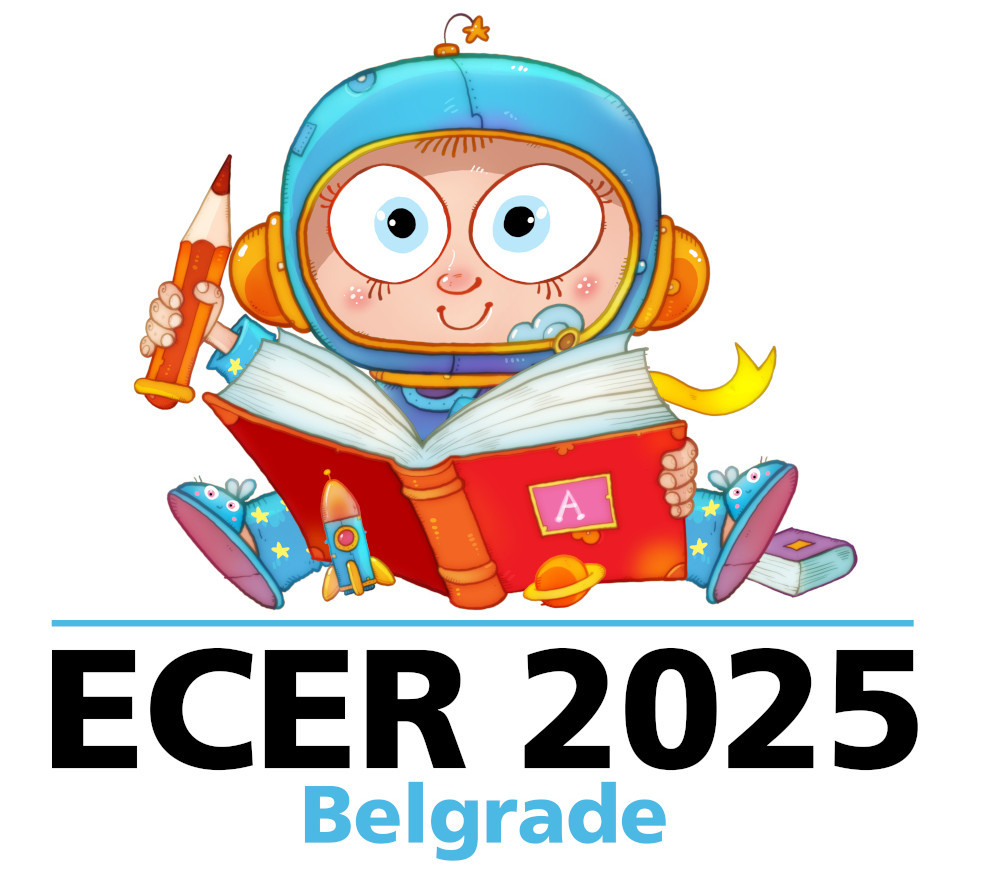- Speakers: Barbara Japelj Pavešić (Educational Research Institute Ljubljana, Slovenia); Jelle Boeve-de Pauw (Utrecht University, The Netherlands); Fernando Martínez Abad (University of Salamanca, Spain); Libor Klement (Faculty of Education, University of Hradec Králové & Czech School Inspectorate, Czech Republic)
- Chairperson: Paulina Korsnakova (International Association for the Evaluation, Slovak Republic)
- Discussant: Güliz Karaarslan Semiz (University of Vechta, Germany)
- When: 00 SES 04 A / Wednesday, 10/Sept/2025: 9:00 - 10:30
- Location: Mak | Kinoteka | 1. Fl
The symposium interrogates Trends in International Mathematics and Science Study (1) (TIMSS) data (2) collected in spring 2023 from pupils in the Grade 4, their parents, teachers, and school principals across European Educational Area as well as educational systems from the Western Balkan neighborhood. Austria, Belgium, Bulgaria, Cyprus, Czechia, Denmark, Finland, France, Germany, Hungary, Ireland, Italy, Latvia, Lithuania, Malta, the Netherlands, Poland, Portugal, Romania, Slovakia, Slovenia, Spain, Sweden as well as Albania, Bosnia and Herzegovina, Kosovo, Montenegro, North Macedonia, and Serbia participated in this endeavor.
TIMSS assessments use national curricula as the major organizing concept that allows to measure educational achievement in mathematics and science as well as to capture detailed information about curriculum and curriculum implementation, together with empirical information about the contexts for schooling obtained from student, teacher, school and home contextual questionnaires. TIMSS assessments are based on comprehensive frameworks (3).
Measuring students’ environmental knowledge has traditionally been part of the Trends in International Mathematics and Science Study (TIMSS) science assessment. With the TIMSS 2019 cycle and the TIMSS 2019 Environmental Awareness Scales, the measurement of student’s knowledge about the natural environment and environmental issues was formalized. TIMSS 2023 further built on these endeavors, outlining the TIMSS 2023 Environmental Attitudes and Behaviors Framework (4) spanning across student, teacher, school and home contextual questionnaires. This unique situation connects students’ knowledge, attitudes, and values to their parents and teachers ´values and attitudes.
The four contributions take different perspectives on the available data. The first one focuses on the three levels of the science curriculum content (intended, implemented, and achieved) and what the available data tells us on Grade 4 student science achievement and the environmental sustainability share within it. The objective of the second contribution is to provide a state-of-the-art overview of the implementation of teaching approaches for environmental sustainability and identify cross-country differences and explore how these teaching approaches at the system level influence students’ environmental attitudes and behaviors as well as how TIMSS 2023 Environmental Attitudes and Behaviors Framework resonates with them. Third contribution focuses on the school context and endeavors to utilize secondary data analysis within the TIMSS research to elucidate and delineate the potential impact of certain school variables on the promotion of sustainability within primary school science education to offer insights into how schools can effectively foster sustainability within the realm of science education at the primary level. Last but not least, the final contribution acknowledges that there is no linear link between environmental knowledge, values and attitudes, and natural (not declared) pro-environmental behavior since the relationship between cognitive components, affective components, and behavior is complex and dependent on several factors (see 5, e.g., Pe'er et al., 2007), including values and behaviors of community. This contribution uses relevant environmental indicators from Eurostat, Eurobarometr, World Bank, and other supra-national and national organizations to seek patterns and to show the influence of society's overall pro-environmental attitudes and behaviors.
Discussion will attempt to situate the contributions in the broader research discourse on sustainability, particularly environmental sustainability and science education as well as a perspective pertinent to the European framework on sustainability competences: GreenComp (6).
References:
(1) Fishbein, B., Foy, P., Yin, L. (2025). TIMSS 2023 International Database. Boston College, TIMSS & PIRLS International Study Center, Lynch School of Education and Human Development, Boston College, ISBN: 978-1-889938-56-1 https://timssandpirls.bc.edu/timss2019/international-database/
(2) Fishbein, B., Foy, P., Yin, L. (2024). TIMSS 2023 User Guide for the International Database (2nd ed.). Boston College, TIMSS & PIRLS International Study Center, Lynch School of Education and Human Development, Boston College
(3) Mullis, I.V.S, Martin, M.O., & von Davier, M. (Eds.). (2021). TIMSS 2023 Assessment Frameworks. Retrieved from Boston College, TIMSS & PIRLS International Study Center website: https://timssandpirls.bc.edu/timss2023
(4) Reynolds, K. A., & Komakhidze, M. (2022). TIMSS 2023 environmental attitudes and behaviors framework. IEA.
(5) Pe'er, S., Goldman, D., & Yavetz, B. (2007). Environmental literacy in teacher training: Attitudes, knowledge, and environmental behavior of beginning students. The Journal of Environmental Education, 39(1), 45-59.
(6) Bianchi, G., Pisiotis, U., Cabrera Giraldez, M. (2022). GreenComp –The European sustainability competence framework. Bacigalupo, M., Punie, Y. (editors), EUR 30955 EN, Publications Office of the European Union, Luxembourg, doi:10.2760/13286, JRC128040.

Important Dates ECER 2025
01.12.2024 | Submission starts |
31.01.2025 | Submission ends |
01.04.2025 | Registration starts |
01.04.2025 | Review results announced |
15.05.2025 | Early bird ends |
25.06.2025 | Presentation times announced |
30.06.2025 | Registration Deadline for Presenters |
08.09.2025 | ERC First Day |
09.09.2025 | ECER First Day |
Conference Venue
Main Building (Check-in etc):
University of Belgrade
Faculty of Philology
Studentski trg 3
Belgrade

Ed Research in Serbia
While preapring for ECER 2025, read the Blog Post introducing some specifics of educational research in Serbia.
Towards reconnecting within and beyond the educational research community in Serbia